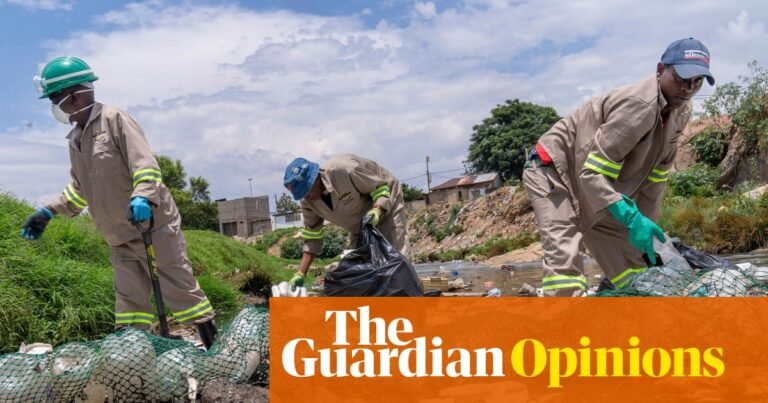Plastic pollution has reached the most remote and inaccessible parts of our beleaguered planet. It has been found in Greenland’s ice cap, near the summit of Mount Everest, and in the deepest depths of the western Pacific Ocean. Nature programmes have sounded the alarm over a human-made crisis that has become an environmental scourge and a serious threat to our health. Yet global production of plastics is on course to triple to more than a billion tonnes a year by 2060, after increasing by more than 200 times over the past 75 years.
This gloomy backdrop should inject a sense of urgency into UN-convened talks in Switzerland this week, aimed at agreeing a binding global plastics treaty. In 2022, when 173 countries committed to work towards such an accord, there was widespread relief that at last a multilateral route was to be taken towards solving a quintessentially global problem. Sadly, as delegates gather in Geneva, there are reasons to be fearful.
As major oil-producing countries seek to circumvent the consequences of the green transition, the fossil fuel-based manufacture of plastics has become a key battleground. During five rounds of negotiations, over three years, a “petrochemical bloc” led by Russia and Saudi Arabia has stalled and obstructed attempts to agree a reduction in production. And as a recent investigation by the Guardian laid bare, corporate capture of the talks has also become a significant problem. Industry lobbyists have sought to dominate and divert the debate, promoting implausible panaceas in the form of new recycling technologies and other mitigating measures.
The return of Donald Trump to the White House is unlikely to improve the prospects of a truly ambitious reset. On the first day of his second term Mr Trump withdrew the United States from the Paris climate agreement, signalling his contempt for multilateralism and his unflinching backing for big oil. There are already signs that in Geneva the US plans to align itself with fellow fossil-fuel producers in resisting any attempt to agree to a reduction in virgin plastic production.
Given such headwinds, the scale of the crisis bears reiteration. Ahead of this week’s talks, an expert review published in the Lancet described plastics as “a grave, growing and under-recognised danger to human and planetary health”. Thanks to television series such as Blue Planet II, the grievous impact on blighted marine ecosystems is relatively widely understood. But plastic production also contributes more than 3% of annual global greenhouse emissions. Most insidiously, its ubiquitous presence in everyday life means that chemical additives and pollutants find their way into human bodies. According to the Lancet report, health-related damages globally add up to £1.1tn a year, with infants and children particularly vulnerable.
Carrying on with business as usual, while seeking unlikely technological fixes, will not be good enough. A cap on global production is desperately needed, though achieving that in Geneva looks like a tall order. At last November’s talks in South Korea, more than 100 countries supported legally binding reductions but negotiations collapsed without an agreement.
A consensus of sorts may be found on the need to eliminate harmful chemicals from future manufacture, and phasing out single-use plastics, which account for half of the 400m tonnes produced every year. That would at least be a start. After years of obfuscation and delay, something tangible must emerge from Switzerland.
